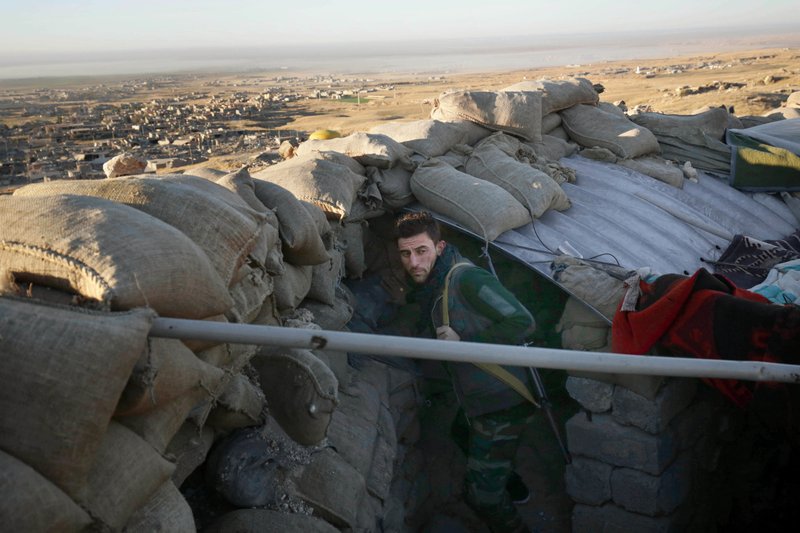QARQASHAH, Iraq -- In the buildup to a long-awaited offensive on the city of Mosul, Kurdish forces are seizing new territory in northern Iraq that they say will become part of their autonomous region. The moves are further straining relations between the Kurds, the Baghdad government and Shiite militias, all ostensibly allies in the fight against the Islamic State militant group.
Just east of Mosul, Kurdish engineering teams on a recent day were laying down a 3-yard-wide, 12-mile-long trench and 2-yard-high berms, marking the new front line after recapturing the village of Qarqashah and neighboring hamlets from the Islamic State earlier this month.
The new self-declared borders established by the Kurdish fighters, known as peshmerga, raise the potential for conflict between Iraq's Kurds and Arabs after any eventual defeat of the Islamic State group -- just as in neighboring Syria, where Kurds also have expanded their zone of control.
"All the areas that have been liberated by the peshmerga forces, our [Kurdish] forces will stay there," said Falah Mustafa, the head of the Iraqi Kurdish region's foreign relations department, echoing statements by numerous officials.
Largely with the help of U.S.-led coalition airstrikes, Kurdish forces have taken territory equivalent to about 50 percent of the size of their recognized autonomous zone.
Their first gain came just days after Islamic State militants took Mosul in the summer of 2014 and stormed down into central Iraq as the military collapsed. Kurdish forces seized the city of Kirkuk, which they have long claimed as their own.
The move supposedly was intended to protect the city from Islamic State militants, but Kurdish President Massoud Barzani quickly said the Kurds would keep it. From there, they continued pushing the Islamic State out, capturing much of the surrounding province.
Since then, they have taken further territory in the nearby Ninevah province, where Mosul is, with "shaping operations" ahead of an expected assault on the city. Much of it is territory with a large Kurdish community that the regional government has claimed for years -- but not all, meaning the grabs are drawing in populations where some are wary of Kurdish domination.
Similarly, in neighboring Syria, long-oppressed Kurds have used the chaos of the civil war and fight against the Islamic State group to carve out a zone of control across the country's north.
The new clout of the main Syrian Kurdish fighting force, known as the YPG, has led to tensions with almost every player on the ground there, including Sunni Arab rebels and government forces. Turkey last week began a major cross-border offensive, aimed mainly at limiting Kurdish expansion.
In Iraq, after the capture of the Qarqashah area, Prime Minister Haider al-Abadi demanded a halt to the peshmerga advances.
But the Kurds refused. The Kurdish regional government's spokesman, Safeen Dizayee, said the peshmerga "will not stop their advances until all Kurdistan's territories in the Ninevah region are liberated." He added that they will not withdraw "from areas they are going to liberate in the future."
Al-Abadi seemed to soften his stance, saying all forces have the right to participate in the Mosul offensive. Still, he stressed that "Ninevah will stay unified."
Information for this article was contributed by Balint Szlanko and Salar Salim of The Associated Press.
A Section on 08/28/2016
